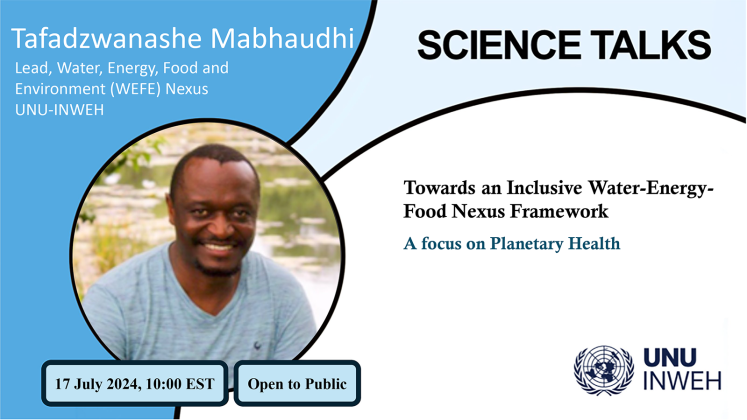Since becoming prominent, the water-energy-food (WEF) nexus has become an important transformative approach for sustainable socio-economic development and natural resources management. As a concept, the WEF nexus has largely focused on the security and sustainability of the WEF resources. However, its practical adoption and implementation have been limited by a lack of real-world applications and uptake into sectors that depend on water, energy, and food, such as environment, social development, and rural development. Critics argue that the resource-centric input approach has reduced relevance in a world focussing on sustainability and human and environmental well-being outcomes. This talk will review existing frameworks conducted to identify how the dimensions of sustainability (social, economic, and political) and human and environmental well-being have been considered in the WEF nexus. Given the gaps, a Planetary Health WEF nexus framework focusing on gender, human, and environmental well-being is proposed, building on the existing frameworks. The framework addresses scale, Anthropocene, governance and outcomes for effective operationalization. Planetary health is at the centre of the framework through i) the pressure that people and their choices and lifestyles have on the planet and its resources, ii) the impact of the degraded planet systems on humans, iii) the role of all people in the governance of WEF resources, and iv) dignified access to WEF resources for all people. The framework enhances i) environmental stewardship, ii) access to WEF resources by all – leaving no one behind, iii) gender equality and social inclusion and iv) sustainable and equitable growth. This all has positive outcomes for the United Nations' sustainable development goals.
Watch the video
Speakers

Lead, Water, Energy, Food and Environment (WEFE) Nexus
UNU-INWEH



